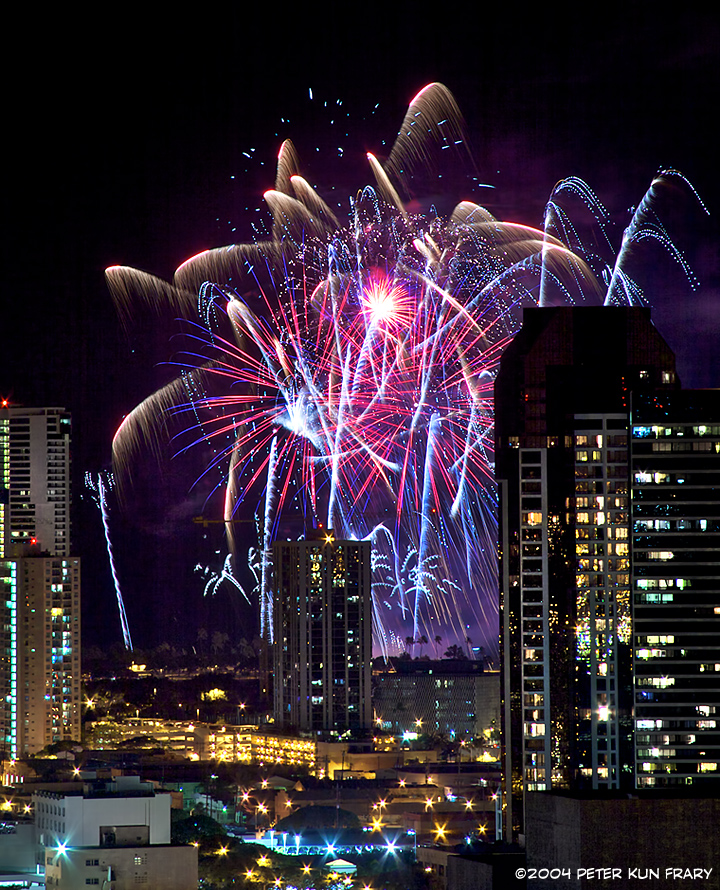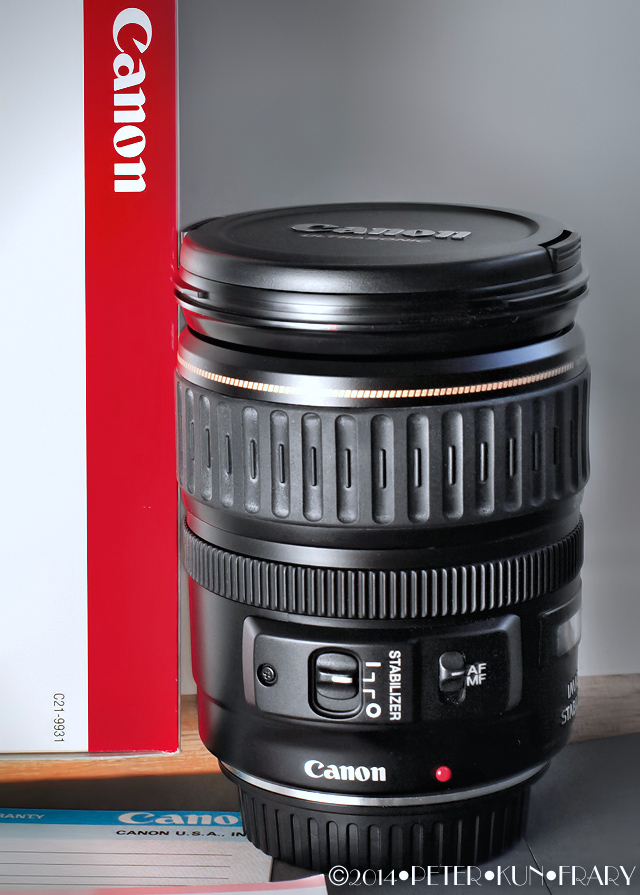.•
Canon EF 28-135 3.5-5.6 IS USM
Old Faithful Kit Lens
Peter
Kun Frary
.
.
The EF 28-135 3.5-5.6 IS USM, introduced 1997, was an impressive engineering feat in its day: wide zoom range, silent and fast AF and Image Stabilization (IS). IS was the new tech on the block, and the 28-135 was the first normal range zoom to feature this technology.
4th of July | EOS 10D and EF 28-135 3.5-5.6 IS USM | F11 and 15 seconds

This review consists of my opinions and observations as a hobbyist. No scientific measurements, MFT charts or pixel peeking comparisons will be found here.
 Compatibility Compatibility
This lens works on all Canon EOS DSLR cameras, both full frame and APS-C (1.6X), such as the EOS 6D and Rebel SL3. It will also work on EOS R and M series mirrorless cameras with a mount adapter. It does not fit non-Canon cameras such as Pentax, Nikon, Fuji, etc.
 Construction Construction
It's a beefy zoom, tipping the scales at 540 g (18.9 oz.). The twist zoom action is reasonably smooth but prone to creep when pointed up or down. And it gets looser with age. After 10 years of extensive use, mine was loose as a goose! Zooming is accomplished by expanding and contracting the nested barrels. Like most AF lenses, the manual focus ring is tiny and not as smooth or finely pitched as manual lenses of yesteryear.
The nested three-barrel design has lots of cracks to suck in dust. All lenses that expand and contract during zooming are subject to this problem. However, I have more particles on the inside of this lens than any zoom I've owned. However, dust doesn't seemed to impact image quality.

It sports a ring-type USM (Ultrasonic Motor) that drives an internal lens group and, thus, AF rips. The front element does not rotate and the barrel does not expand or contract during focusing. However, the barrel extends considerably when zooming to 135 mm. It is nearly silent during AF. It has FTM, allowing you to manually focus without switching out of AF mode. If you prefocus manually, the distance window in meters and feet is useful.
The 72mm filter size makes filters expensive. The instructions state you cannot use a polarizing filter with a lens hood. However, it's easy to rotate the filter through the petal cutouts of the lens hood. And the hood is an optional accessory.
Waikiki | EOS 10D and EF 28-135 3.5-5.6 IS USM

 Image Quality Image Quality
For a consumer zoom, it's reasonably sharp and contrasty, slightly sharper than my EF 28-105 3.5-4.5 USM. Although quality is decent wide open, the best image quality is from 28-50mm at F8. It is a little softer at the long end. It suffers from a small amount of barrel distortion at the wide end and pincushion distortion at the long end. However, I haven't noticed much distortion except in macro mode, where barrel distortion at 28 mm is slightly more pronounced. Image quality is good enough for excellent 11 x 14 or 12 x 18 inch enlargements.
Latourell Falls OR | EOS Elan 7E, EF 28-135 IS USM,
Hoya Polarizing Filter Velbon 343E Tripod & Portra 400UC

In terms of flare and ghosting, this is the weakest of Canon's zooms. In other words, flare and ghosting will probably occur if you shoot bright sunsets or other strong light sources. I keep the lens shade on to help keep flare in check.
 Image Stabilization Image Stabilization
Image Stabilization (IS) really sets the performance and use of this lens apart from previous zoom designs. Small gyro sensors coupled to a CPU detect the degree and direction of camera shake and counteract this vibration by moving a compensating optical group. Subsequently, I almost always get a sharp picture, even two or three stops below my normal hand held shutter speed.
IS changed
the way I take pictures. I used to put away my
camera when conditions got dark and murky, now I
keep on shooting. However, IS is not just for low light
conditions, it helps in any high
vibration situation such as shooting in high
wind, airplanes, automobiles or boats. Heck,
I've shot one-handed while hanging off a cable
car in San Francisco and nailed a sharp picture. For years this was my favorite ready-for-anything travel lens.
Multnomah Falls (upper falls) | EOS Elan 7E, EF 28-135 3.5-5.6 IS USM,
Hoya Polarizing Filter Velbon 343E Tripod and Sensia 100

The instructions
recommend turning IS off when using a tripod as
the lack of movement may cause IS to be erratic.
However, IS is extremely useful in conjunction
with a tripod as long as there is some
vibration. For example, when windy, I use Image
Stabilization with a tripod mounted camera and
it makes a major improvement in sharpness.
Nevertheless, this early IS implementation is showing its age two decades hence. Newer designs sport panning mode and another stop or two of stabilization.
 Last Blurb Last Blurb
If you can't afford the EF 24-105 4L IS USM, this is the next best thing and a nice lens for film and full-frame DSLRs such as the 6D or 5D MKII. It's been sold as a kit lens since the late 1990s and thus supply is abundant, causing used and refurbished samples to sell at bargain prices.
More
images taken with the EF 28-135 3.5-5.6
IS USM:
06/11/2001 | Revised 9/25/2023

©Copyright 2001-24 by Peter Kun Frary | All Rights Reserved
|